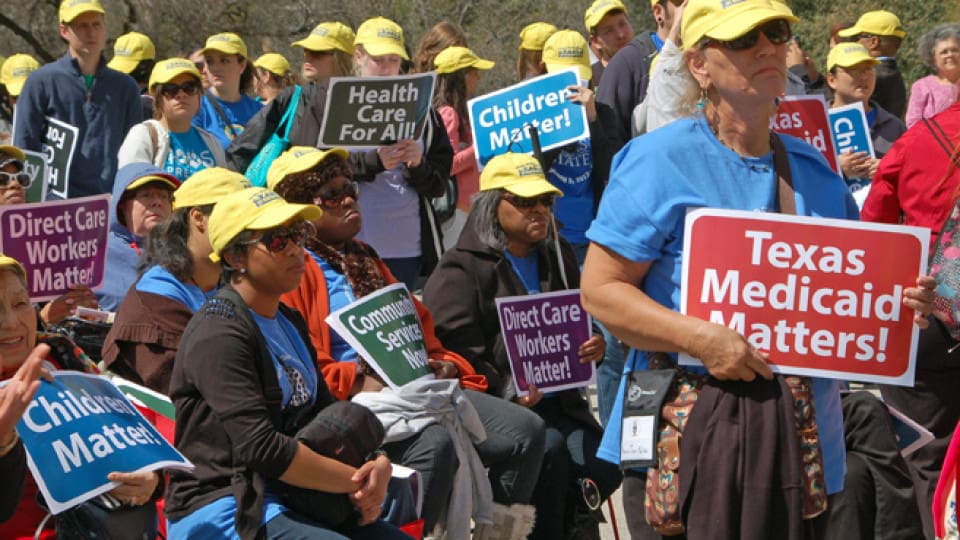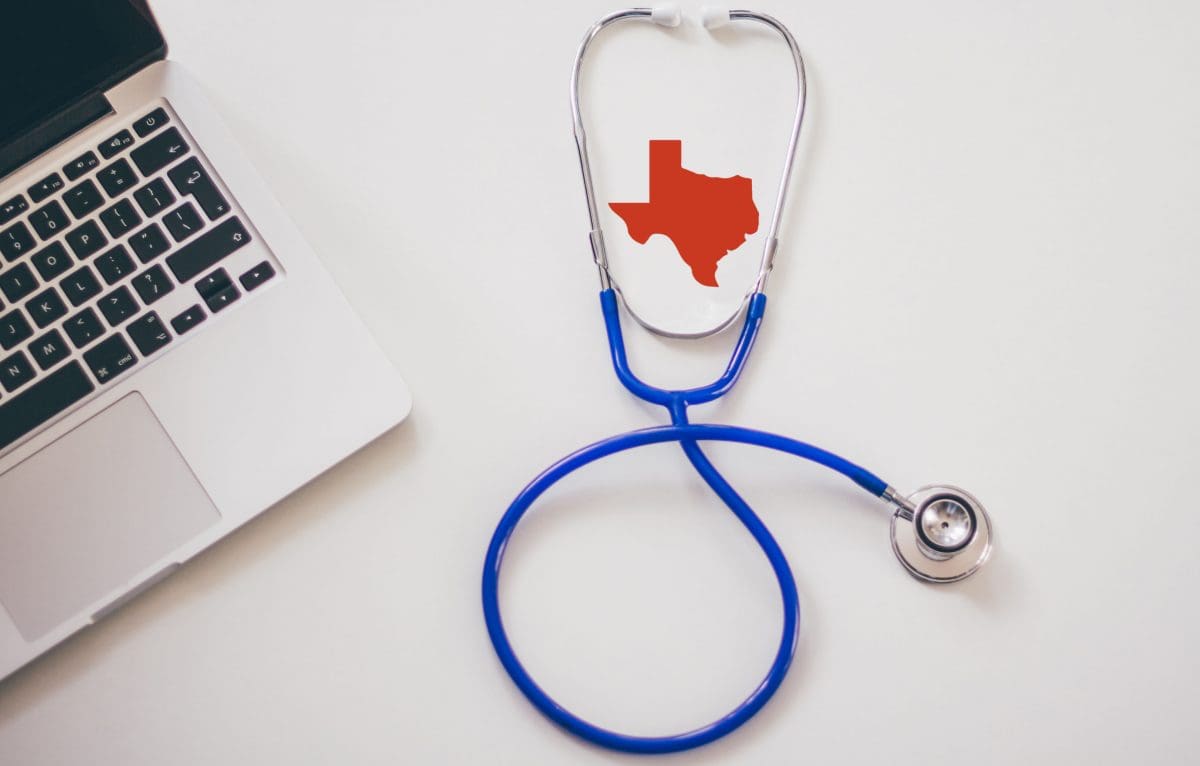Archives
Texas Biennial Budget Cycle

This week CPPP joins dozens of other Texans—individuals and organizations—to testify on the Texas Senate’s current state budget proposal, Senate Bill 1.
As our testimony details, we are alarmed by several key Senate budget proposals related to Medicaid:
- Not fully funding Medicaid in the final month(s) of the 2016-2017 budget, denying $1.2 billion in general revenue (state dollars) to this critical program
- Not funding the $1.2 billion general revenue gap in Medicaid base funding in the 2018-2019 budget
- Not including enrollment growth costs (over $700 million) in the budget, though instructions from the Governor and the Legislative Budget Board called for factoring in such growth
- A rider requiring an additional 1.5 percent in GR cuts across the budget, with only K-12 formula funding (Foundation School Program) exempt. If distributed evenly across the budget, this would require another $400 million GR (or more) in Medicaid funding reductions.
The Center is also alarmed that HHSC Commissioner Smith noted in his briefing material for the Committee, “(t)o the extent the Legislature wants to make adjustments to optional benefits and eligibility, this funding request may be reduced.” We recall all too well the disastrous 2003 Legislative cuts to Medicaid and CHIP,[i] nearly all of which were reversed. Lawmakers made cuts to eligibility for maternity coverage, the Children’s Health Insurance Program (CHIP), and they eliminated eyeglasses, hearing aids, mental health services, and podiatry for all adults including seniors and adults with disabilities. Kids covered by CHIP dropped by over 200,000 (a 40 percent drop), and seniors and adults with disabilities faced worsening outcomes as their mental health, vision, and hearing needs went without treatment.
Is Under-funding a Cut? Texas has often in the last 20 years used low enrollment and spending budget numbers for Medicaid, to allow for a smaller balanced budget to be passed, but virtually guaranteeing a supplemental appropriation will be required in the next session to fund the final months of Medicaid (currently running around $1.5 billion GR a month).
If budget writers or state leaders do not direct the Medicaid agency to make a program, eligibility, or benefit cut to reduce spending to meet the number written into the budget, then the under-funding does not have to result in reduced eligibility or services for Texans on Medicaid. The Legislature can fill the gap in the next session. But if bills are passed or budget riders are included that direct HHSC to reduce spending, then fewer Texans in need of Medicaid will be covered, and/or the children, seniors, Texans with disabilities and pregnant women served today will get fewer health care services.
So at this point in the budget process, we can say that we are deeply concerned about the large size of the under-funding, and worried that they will become cuts that are even deeper than the failed cuts of 2003.
Texas need not face these cuts in 2018. To avoid these damaging cuts and meet other critical state needs, the Legislature should access the Rainy Day Fund. The Legislature could use $4.4 billion from the Fund and still not go below the $7.5 billion sufficient balance target adopted. The Rainy Day Fund is specifically designed for times like these, when a strategic investment of resources can prevent or reduce sudden massive cuts to schools, health care and other state services.
[i] Truth and Consequences: The State Budget for 2004-05 and its Impact on Texans; June 2004; page 25, http://library.cppp.org/files/6/budgetimpact04-web.pdf
How an ACA Repeal Would Harm Texans

With the Affordable Care Act (ACA) Open Enrollment deadline just one week away, it’s important to outline how important the landmark health law has been for Texans. Over 1.1 million Texans have selected plans in the health insurance Marketplace so far, with 27 percent of them being new to the Marketplace this year.
In our new fact sheet, we outline how dangerous a repeal of the ACA by Congress would be for Texas, especially without immediate replacement. Remember that in the first U.S. Senate debate and vote to set Congress on a repeal pathway, numerous Senators cautioned—including a number of Republican officials—that an ACA repeal without replacement is not an option. Agreeing on a replacement plan, they argued, will likely take time.
CPPP held a briefing at the Texas Capitol on January 24 to go over these threats to Texas. Watch a recording of the presentation here, and view the slides here.
Here are some of the challenges Texas could face if Congress repealed the ACA without giving Texans any other options:
- Loss of Coverage, Collapse of Individual Marketplace. Over 900,000 Texans get sliding-scale discounts that cut their health insurance premiums by an average of 75 percent, and without those discounts most will drop coverage. Coverage for another 900,000 insured unsubsidized Texans would also be in jeopardy. Insurance experts predict collapse of the individual (direct-purchase) Health Insurance Marketplace is likely with either a full repeal or “repeal and delay.” The American Academy of Actuaries has warned Congress that repealing major provisions of the ACA (even a repeal with a delay), or eliminating subsidies, could result in significant market disruption leading to millions of Americans losing health insurance. Economists from the conservative American Enterprise Institute have raised the same concerns.
- Yearly or lifetime caps. If you have a serious injury or illness, you could hit a yearly or lifetime dollar cap, and have no more insurance coverage. Before the ACA, Texans with serious conditions like hemophilia, Crohn’s disease, cancers, or who needed organ transplant had coverage that stopped paying their bills at some point, leaving them scrambling for care, compromising their health and often causing financial ruin. About 5 million insured Texans had a lifetime limit on their insurance policy before the ACA.
- Mental health coverage. Coverage of mental health needs or substance use disorder treatments could be dramatically reduced. Equal treatment for mental health and substance use disorder conditions—known as “mental health parity protections”—would be dramatically reduced with ACA repeal. The ACA extended mental health parity to cover more insured Texans, and repeal would mean millions of Texans would lose protection of equal access to mental health benefits in insurance.
- Women could be unable to buy insurance that covers maternity, and could once again be charged more than men. Before the ACA ended gender discrimination in health coverage pricing, women in Texas were charged as much as 56 percent more than men for the same coverage (even with maternity benefits excluded). Before the ACA, women literally could not purchase coverage on the individual market that covered pregnancy—and not just after a women got pregnant. Insurers in Texas simply did not sell non-group policies that included maternity care.
Read more in our full policy brief here.